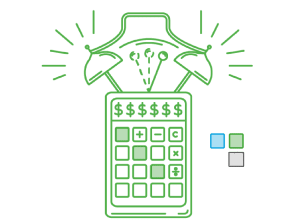This article answers the following questions:
- In what situations can transfer price adjustments be subject to VAT?
- What evidence showing that the services have been delivered and that they were necessary may be required by the tax authorities?
At the beginning of September 2025, the Court of Justice of the European Union (CJEU) issued a judgment (C-726/23) which may be of major importance for taxpayers making transactions with related entities. Even though the case referred to a Romanian entity, the decision will apply throughout the European Union.
Dispute with the tax authorities over the adjustment of profit margin
The judgment, which is also significant for Polish taxpayers, was issued in a dispute between the tax authorities and a Romanian company from a multinational group dealing with crane rental. Its Belgian parent company was responsible for support services, such as seeking and sourcing suppliers.
According to the transfer pricing analysis conducted by the group, the operating profit margin of the Romanian company had to be within a specified range, as provided for in a contract between the companies. In the event of any deviations from that range, appropriate settlement invoices were to be issued by the related entities.
In the years 2011–2013, the profit margin of the Romanian company was outside of the agreed upon range adopted as part of the transfer pricing policy, hence the parent company issued such settlement invoices. However, the Belgian entity did not include VAT on the invoices, even though it declared those invoices as relating to supplies of services.
The Romanian subsidiary adopted different approaches to those invoices: some of them were settled as intra-Community purchases of services, while other invoices as transactions outside the scope of VAT. The Romanian tax authorities, however, challenged that approach and refused the right to deduct tax on the grounds of lack of evidence confirming that the services had actually been supplied and that they had been necessary for the taxable transaction.
Find out how we can support your business
Resolution of the dispute by the CJEU
The court ruled that the remuneration which is calculated according to the method of the Organisation for Economic Co-operation and Development (OECD) and which adjusts the operating profit margin of the subsidiary should be treated as a supply of services for consideration which is subject to VAT (in accordance with Article 2(1)(c) of Directive 2006/112/EC).
In other words, such invoices as the settlement invoices issued by the Belgian parent company are not tax neutral and may give rise to VAT obligations.
In addition, the CJEU stated that the tax authorities may require the taxable person to submit other evidence than invoices in order to prove that the services have actually been delivered on condition that such a request of the authorities is "necessary and proportionate for that purpose".
What the judgment on the adjustment of VAT invoices means in practice
The presented judgment of the CJEU proves that transfer pricing adjustments within a group are not always neutral and may be considered as transactions subject to VAT. Furthermore, the decision is not only consistent with the EU treatment of VAT, but also has practical implications for companies conducting transactions with related entities. It points to the obvious conclusion that transfer pricing adjustments within a group may give rise to the obligation to account for VAT. This means that it is best practice to keep full documentation confirming that services have been delivered.
If you wish to feel safe and avoid penalties, consult our tax advisors who have extensive experience in handling local and international transactions. Our specialists in VAT compliance and transfer pricing analysis will ensure that your company adequately fulfils all its obligations as well as represent the you before the tax authorities in order to defend the adopted solutions if such a need arise.






